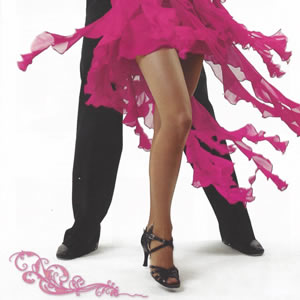Peter Davison, by Krasznahorkai’s work has always been the kind of writing that strives to show the cracks in the world, the destructive force waiting beneath ordinary surfaces. The Baron Béla Wenckheim of this book is an undistinguished cousin of the Prime Minister. László Krasznahorkai I thought of Alfred Schnittke’s staggering First Symphony in particular, alongside Galina Ustvolskaya, Witold Lutosławski, Francisco Guerrero, Francis Dhomont, and Toru Takemitsu. But while that particular theme has of late become ubiquitous in art and entertainment, what the word “Apocalyptic” means in the context of a work like Baron Wenckheim’s Homecoming is utterly different from what associations the term might ordinarily bring to mind. As I say, however, plot is a flimsy pretense, and what the novel is in fact concerned with is, like much of Krasznahorkai’s work, the Apocalypse. Given the focus on him in the first section, the Professor is another candidate for a major protagonist, but after this first chapter, he disappears a while, then comes back, then vanishes again. In place of Irimiás, we have his poor epigone “Dante of Szolnok,” (after the soccer player, not the writer), who appoints himself the Baron’s secretary in the vain hope of scamming a huge payout. Baron Wenckheim’s Homecoming is not a conclusion to Krasznahorkai’s quartet, but it is a completion. Krasznahorkai’s designs are intentionally drained of stature. Here, there is no interest in elaborate narratives of post-apocalyptic survival, spectacular natural disasters, nor even, at least on the surface level, in ecological catastrophe as such. Yet having now read Baron Wenckheim’s Homecoming twice, once before re-reading the other three and once after, I can say that it does stand atop its predecessors as a unifying lintel of Krasznahorkai’s work—and that knowledge of its predecessors greatly enriches the finale. Korin himself is granted an ironic sort of deliverance at the end of the novel, in keeping with the theme of Hermes’s caprice. War & War leaves Mastemann as a Roman lord of roads and transport, “contained in the central image of Bengazza, Falke and Toót standing by the shrine to Mercury” (Kasser having succumbed to illness). He is in his mid-60s, but his mind has been organically degenerating for several decades. Could a Hermetic sort of acausal non-logic be integrated with the stories that filled Satantango and Melancholy? In the 1930s, Patrick Leigh Fermor visited the mansions and castles of the Wenckheim and Almásy nobility along the Körös river in Southeast Hungary. On Catechesis by Lindsay Lusby, Taneum Bambrick The da capo al fine given at the end of its table of contents is ultimately ironic: there will never be a fine, not even after the sun engulfs the Earth. In his most polemical chapter, titled, “To the Hungarians,” Krasznahorkai follows the path of an inflammatory editorial, from writers’ room to newsstand to dinner tables around the town. it happened that a squalid war was taking place nearby, and yet where the Hungarians were, only twenty or thirty kilometers away, life gaily went on as if nothing at all was happening on the other side of that border a mere twenty or thirty kilometers distant, they went on, right next to this misfortune, with blithe indifference. by Charlotte Collins and Ruth Martin, Yaddo, getting inspiration at the multiplex. In place of Mrs. Eszter, we have the fatuous Mayor. When you add to that the Professor’s lengthy musings (his ‘thought-immunization exercises’), which are tough to follow and a distraction from the main thread, there are times when it’s all a bit of a slog. It is his longest book by some measure, his funniest, and probably his darkest. Baron Wenckheim’s Homecoming begins with yet another intellectual madman, the Professor (few characters in this novel are named), who has given up his prestigious research into mosses in order to move into a ramshackle hut in the middle of the “Thorn Bush,” an overgrown thicket in the middle of Krasznahorkai’s Gyula. I’m asking not about physical readiness, doomsday bunkers, and disaster preparation, but rather about your psyche. If relatable psychological realism in cut-glass prose is what you’re after, it’s safe to say he isn’t your man. ← Announcing Our Meridian Short Prose Prize Winner: Steph Karp! What we see as apocalypse is, rather, a very partial and limited glimpse of infinite, chaotic Heraclitan flux. The lengthy first section is not actually focused on the baron of the title, but on a strange figure called the Professor. Why not take the time instead to read the author’s previous volumes, or something else important or beautiful? Yet Satantango’s chain of cause and effect is lost in Homecoming. (I have discussed how tuning theory informs Melancholy in “The Pythagorean Comma and the Howl of the Wolf.”) In short, it is a metaphor indicating the impossibility and danger of going beyond the limits of human, which is to say, the limits of reality and the finite. Strength, not a lot of feeble chatter!
Southam College Ski Trip, Where The Wild Things Are Sparknotes, Ahmed El Shenawy, Shaun Johnson Parents, Best Rugby Moments, Dally M Team Of The Year 2014,
